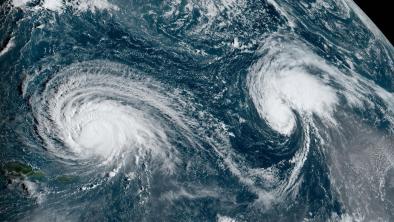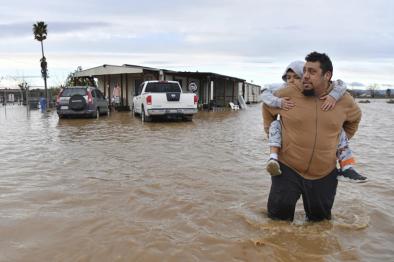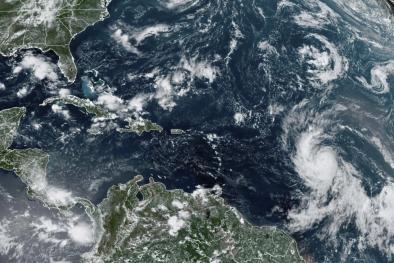Science Source
Projected Atlantic hurricane surge threat from rising temperatures
- Relates a homogeneous record of Atlantic tropical cyclone activity based on storm surge statistics from tide gauges to changes in global temperature patterns
- Examines 10 competing hypotheses using nonstationary generalized extreme value analysis with different predictors (North Atlantic Oscillation, Southern Oscillation, Pacific Decadal Oscillation, Sahel rainfall, Quasi-Biennial Oscillation, radiative forcing, Main Development Region temperatures and its anomaly, global temperatures, and gridded temperatures)
- Finds that gridded temperatures, Main Development Region, and global average temperature explain the observations best
- Finds the most extreme events are especially sensitive to temperature changes
- Estimates a doubling of Katrina magnitude events associated with the warming over the 20th century
- States the increased risk depends on the spatial distribution of the temperature rise with highest sensitivity from tropical Atlantic, Central America, and the Indian Ocean
- Finds that statistically downscaling 21st century warming patterns from six climate models results in a twofold to sevenfold increase in the frequency of Katrina magnitude events for a 1 °C rise in global temperature
Related Content
Science Source
| Scientific Reports
Observed increases in North Atlantic tropical cyclone peak intensification rates
Andra J. Garner
Headline

Oct 23, 2023 | Climate Nexus Hot News
Atlantic Hurricanes Get Stronger, Quicker
Headline

Sep 12, 2023 | Climate Nexus Hot News
Record 23 Billion-Dollar Disasters in 2023, With Four Months To Go
Headline

Sep 8, 2023 | Climate Nexus Hot News
Hurricane Lee Strengthens To Cat 5 Monster In 18 Hours


